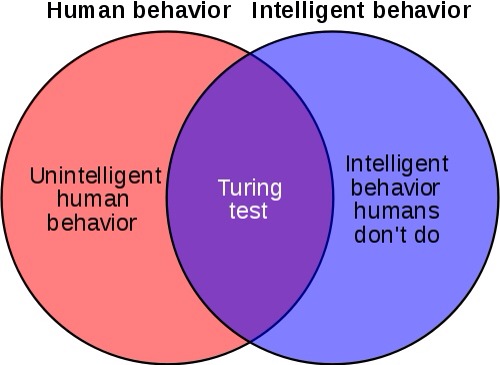Alan Turing said that a computer could be understood to be thinking if it passed a test, which requires that a computer dupes thirty per cent of human interrogators in five-minute text conversations.
Now the Turing Test which requires that computers are indistinguishable from humans may have been passed in a test conducted at the Royal Society in London.
The computer programme, made by a team based in Russia, convinced thirty three per cent of the judges that it was human, according to academics at the University of Reading, which organised the test.
The test was staged on Saturday’s 60th anniversary of Alan Turing’s premature death, alone in his Manchester bedroom.
‘Eugene’, a computer programme that simulates a 13 year old boy, was developed in Saint Petersburg, Russia. The development team includes Eugene’s creator Vladimir Veselov, who was born in Russia and now lives in the United States, and Ukrainian born Eugene Demchenko who now lives in Russia.
The Test is based on Turing’s 1950 famous question and answer game, ‘Can Machines Think?’. The experiment investigates whether people can detect if they are talking to machines or humans.
Professor Kevin Warwick, a Visiting Professor at the University of Reading and Deputy Vice-Chancellor for Research at Coventry University, said: “In the field of Artificial Intelligence there is no more iconic and controversial milestone than the Turing Test, when a computer convinces a sufficient number of interrogators into believing that it is not a machine but rather is a human. It is fitting that such an important landmark has been reached at the Royal Society in London, the home of British Science and the scene of many great advances in human understanding over the centuries. This milestone will go down in history as one of the most exciting.
“Some will claim that the Test has already been passed. The words Turing Test have been applied to similar competitions around the world. However this event involved the most simultaneous comparison tests than ever before, was independently verified and, crucially, the conversations were unrestricted. A true Turing Test does not set the questions or topics prior to the conversations. We are therefore proud to declare that Alan Turing’s Test was passed for the first time on Saturday.
“Of course the Test has implications for society today. Having a computer that can trick a human into thinking that someone, or even something, is a person we trust is a wake-up call to cybercrime. The Turing Test is a vital tool for combatting that threat. It is important to understand more fully how online, real-time communication of this type can influence an individual human in such a way that they are fooled into believing something is true…when in fact it is not.”
Its developers spent a lot of time developing a character with a believable personality and this year improved the ‘dialog controller’ which makes the conversation far more human-like when compared to programs that just answer questions. Going forward they plan to make Eugene smarter and continue working on improving what we refer to as ‘conversation logic’.”
Among the judges tasked with separating the human and computer participants were the actor Robert Llewellyn, who played robot Kryten in the sci-fi comedy TV series Red Dwarf, and Lord Sharkey, who led the successful campaign for Alan Turing’s posthumous pardon last year.
Professor Warwick concluded: “Not long before he died on 7th June 1954 Alan Turing, himself a Fellow of the Royal Society, predicted that in time this test would be passed. It is difficult to conceive that he could possibly have imagined what computers of today, and the networking that links them, would be like.”







